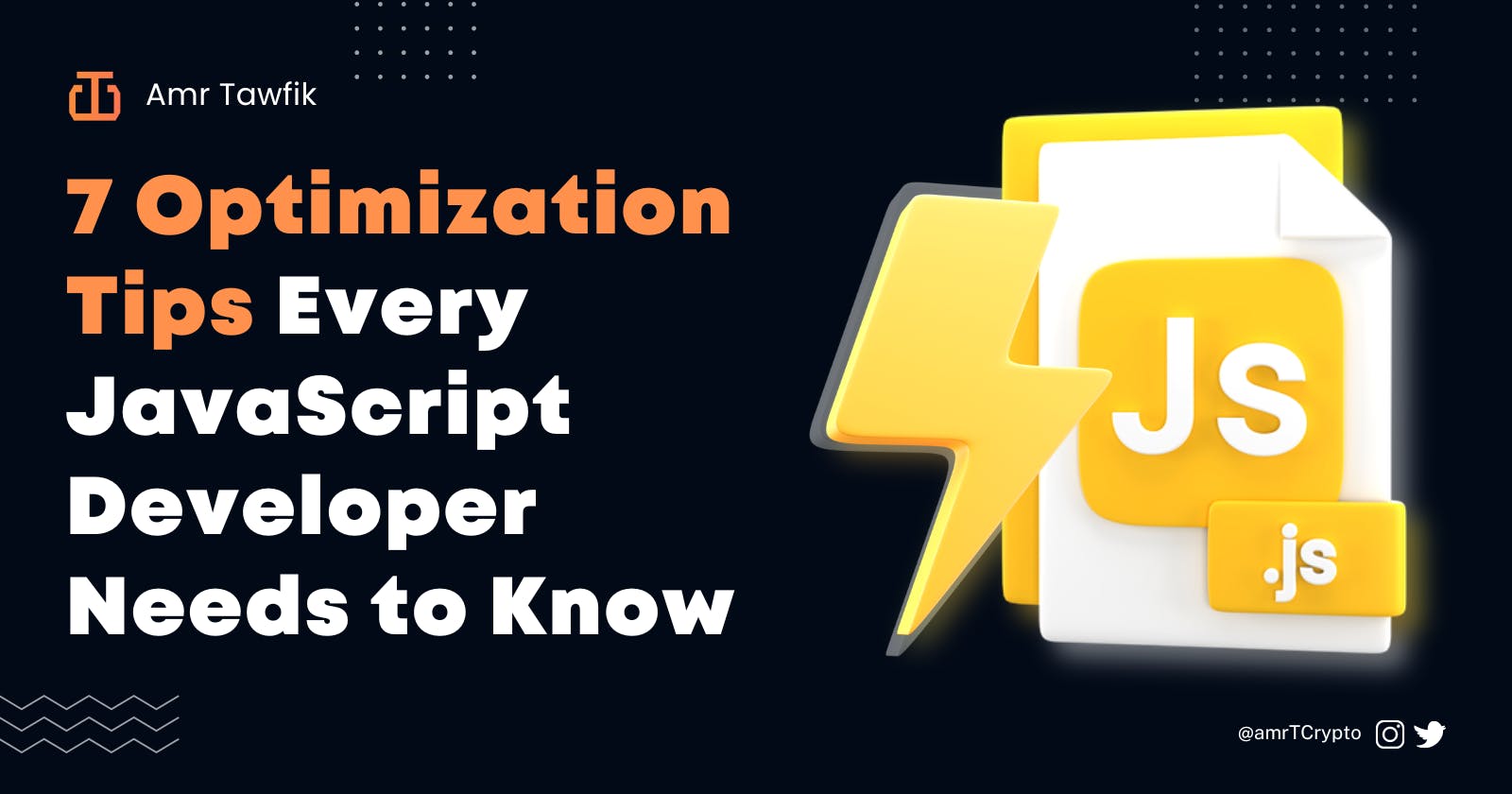7 Optimization Tips Every JavaScript Developer Needs to Know
In this article, I'll share 7 optimization tips that every JavaScript developer should know.
As a JavaScript developer, you're probably well aware of the importance of performance optimization. Not only does it make your code run faster, but it can also save you time and money in the long run.
There are a number of different ways to optimize your code, but not all of them are created equal. In this article, I'll share 7 optimization tips that every JavaScript developer should know.
1. Don’t Repeat Yourself (DRY)
One of the main principles of good programming is the DRY principle. DRY stands for Don’t Repeat Yourself. The DRY principle is simple:
Don’t write the same code multiple times.
If you find yourself writing the same code multiple times, there’s a good chance you can refactor it into a function or a module. Not only will this make your code more readable and maintainable, but it can also make your code more performant.
2. Use Native JavaScript Methods
Whenever possible, use the built-in methods provided by JavaScript. These methods are usually more performant than the equivalent code you would write yourself.
For example, instead of using a for loop to iterate over an array, you could use the forEach() method:
const arr = [1, 2, 3, 4, 5];
arr.forEach(function(item) {
console.log(item);
});
3. Cache DOM Elements
If you’re working with DOM elements in your code, it’s a good idea to cache them in variables. This will save you from having to query the DOM multiple times, which can be a costly operation.
For example, if you wanted to get the element with the ID of “my-element”, you could do this:
const myElement = document.getElementById("my-element");
And then use the myElement variable throughout your code, rather than querying the DOM multiple times.
4. Use a Framework/Library
If you’re not using a framework or library, you might consider doing so. These can provide a number of benefits, including:
- More functionality
- Better performance
- Easier to use
Of course, there are also some drawbacks to using a framework or library, including:
- A larger codebase
- More overhead
- More dependencies
So, it’s important to weigh up the pros and cons before deciding whether or not to use one.
5. Minify Your Code
Minification is the process of removing all unnecessary characters from your code, such as whitespace, comments, and unused variables. This can result in a significant reduction in file size, which can lead to improved performance.
There are a number of tools available that can help you minify your code, such as Webpack.
6. Use a Task Runner
A task runner is a tool that automates common development tasks, such as minification, compilation, linting, etc.
There are a number of popular task runners available, including Gulp and Grunt.
7. Use a Module bundler
A module bundler is a tool that bundles all of your JavaScript modules (and their dependencies) into a single file (or a few files). This can be beneficial for a number of reasons, including:
- Reduced number of HTTP requests
- Reduced file size
- Better performance
There are a number of popular module bundlers available, including Webpack and Browserify.
If you have any questions or suggestions, feel free to reach out to me! 😊
You can find me on:
🕊 Twitter: https://twitter.com/AmrTCrypto
👩💻 Instagram: https://www.instagram.com/amrtcrypto/
📩 Email: amrtawfik160@gmail.com

